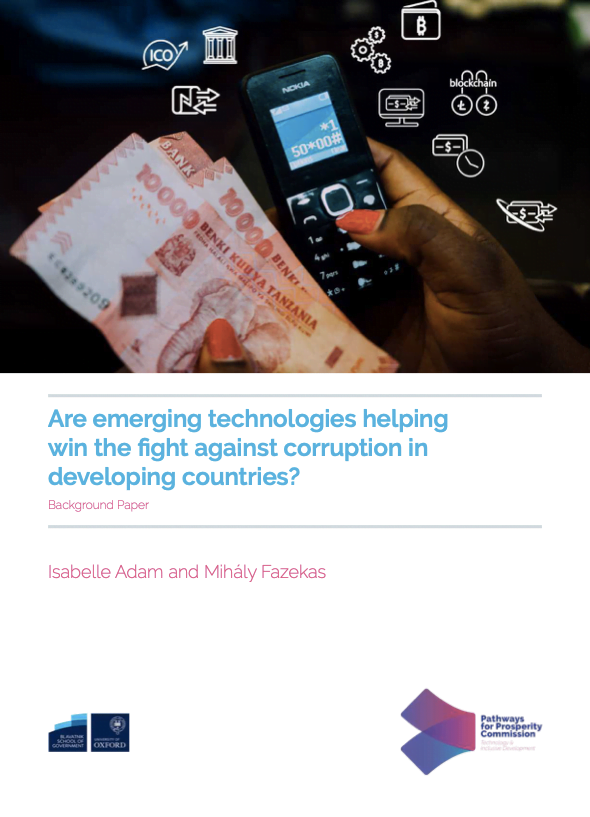
This paper takes systematic stock of the most recent academic and policy literature that addresses Information and Communication Technology (ICT) tools and their impact on corruption. The tools analyzed include digital public services, crowdsourcing platforms, whistleblowing tools, transparency portals, big data, distributed accounting technology (DLT), and artificial intelligence (AI).
The paper also examines the evidence on the effectiveness of various technologies, the drawbacks, and the potential misuse that enables corruption. Based on the similarities between the different technologies, it seems that ICT can genuinely support anti-corruption by impacting public scrutiny in numerous ways. For example, by digitizing public services and enabling the reporting of corruption, it can promote transparency and accountability and facilitate citizen advocacy and participation, as well as closer interaction between government and citizens. However, ICT can also provide new opportunities for corruption related to the dark web, cryptocurrency, or simply the misuse of well-intentioned technologies such as digital public services and centralized databases.
The findings underscore that ICT is not per se a solution against corruption and can equally do the same as corrupt officials. It is important to note that the existence of ICT tools does not automatically translate into anti-corruption results. Rather, the impact depends on the suitability of ICT to local contexts and needs, cultural background, local support, and skills in using the technology.
Year of publication: 2018
Author: Isabelle Adam and Mihály Fazekas
Promoter: Pathways for Prosperity Commission – Oxford University’s Blavatnik School of Government
More information: https://pathwayscommission.bsg.ox.ac.uk/sites/default/files/2019-09/are_emerging_technologies_helping_win_the_fight_against_corruption_in_developing_countries.pdf






